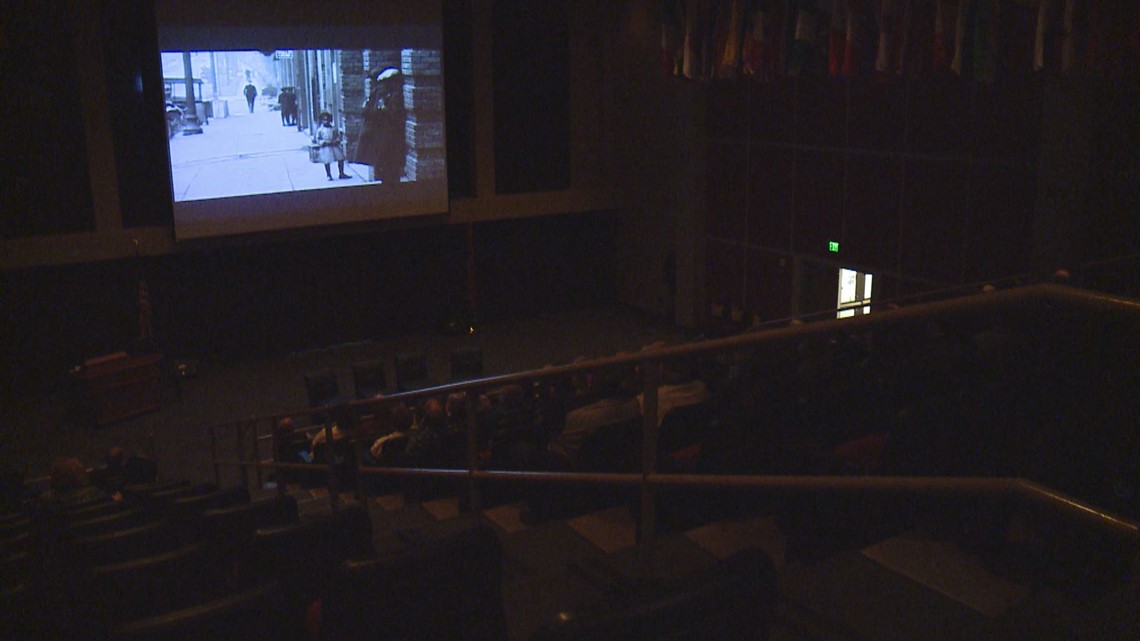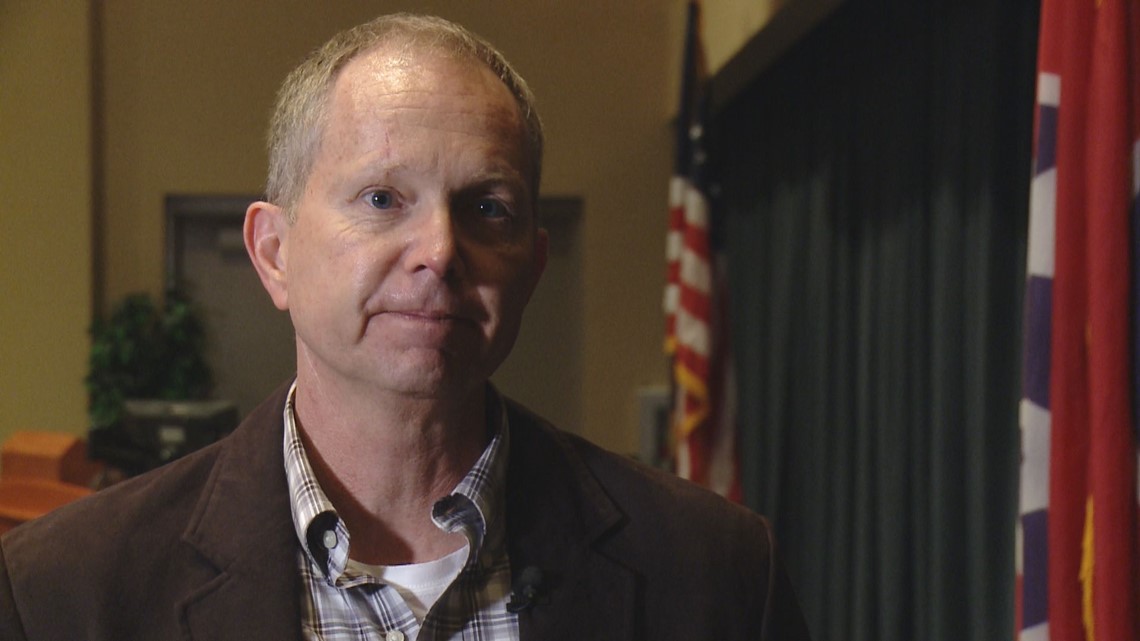MORRISTOWN, Tenn. — Monday night a new documentary debuted at Walters State Community College. The film is the culmination of several years of research by history professor Marc McClure into the life of a Newport doctor who broke through racial barriers.
"I started working on this project around two and a half years ago. I was doing a documentary on a Kiffin Rockwell, a World War One pilot from Newport. People in town started telling me all about another famous resident, Dr. Dennis Branch," said McClure. "The more I found out about him [Branch], the more I wanted to tell his story."
The story was told to an audience at Walters State with a debut screening of McClure's documentary, "Extraordinary Man: Dr. Branch of Newport, Tennessee."


Dr. Branch graduated medical school and moved to Newport in 1914. He provided crucial medical care to a predominantly white region in the mountains where the need for healing often took precedent over bigotry.
The racial barriers Dr. Branch overcame through decades of devoted work eventually led to national recognition in the 1950s. Branch was profiled in Ebony Magazine and then was featured in a 1958 episode of the television program "This Is Your Life."
McClure hopes his documentary will help Dr. Branch's story reach a new audience.
"Dr. Branch, he was inspirational to a generation. And I want him to be inspirational to another generation," said McClure.
One of the people in the audience Monday night was Donna Holland Barnes. She made the trip to Morristown from her home in Maryland to learn more about the man she heard about her entire life.


"I am his great niece," said Barnes. "Growing up, my mom talked so much about my aunt Maggie and uncle Dennis. She lived with them. He passed away when I was young, but he put value to the family. We were very proud to have a medical doctor in the family. So, he was revered."
Barnes occasionally searched the internet for more information about her great uncle. In August 2018, the search results included news of an upcoming documentary by McClure.
"I was just so excited because now I'd be able to learn more about my uncle Dennis," said Barnes. "It means a lot to be able to be here and see this film. It is very tearful. When I walked in the room and saw the display [of Dr. Branch newspaper clippings] and people started telling me about him, tears came to my eyes."


Roughly 80 percent of Dr. Branch's clients were white in a time when the racial divide was an open wound in American society.
Despite his ability to ease racial tension and obtain relatively unprecedented status for a black man, Dr. Branch was reminded of the culturally ingrained bigotry when he attempted to run for public office in 1958.
"He was a vice president of the Chamber of Commerce, trustee at Morristown College, and had all these qualifications and experience. But before then, in his medical practice, it was whites crossing the segregation barrier to him. When he ran for office, I think it was perceived as him crossing the barrier and he was met with resistance he did not expect," said McClure. "It was a negative experience. He died in 1964 and the last few years of his life were a down-note compared to the rest of his inspirational story."
While Dr. Branch did not overcome the racial barriers to be elected to public office, he inspired others in Newport and other communities throughout Cocke County. The documentary includes the story of Dr. Kenneth Olden, a black man who grew up in poverty in nearby Parrottsville and rose to national prominence.


"Dr. Olden went on to become one of the chiefs of the National Institute of Environmental Health Science. He was inspired by Dr. Branch," said McClure. "Newport also would eventually elect a black mayor, Rolland Dykes, in the 1990s. Now his son, Rolland Dykes III, is the mayor in Newport. Dr. Branch inspired a generation and his work eventually opened doors for others."
"I think people should care about Dennis Branch because he is an unsung hero," said Barnes. "He knew no color. It didn't matter to him. All he knew was these people needed to be taken care of."
(Updated Tuesday, Feb. 12) McClure says he is still working to raise the money needed for licensing fees that would allow him to post the full documentary online. Because the documentary includes extensive excerpts of the Ralph Edwards television program "This Is Your Life," the owners of the content charge $10,000 for unlimited use of the footage. McClure had to spend $500 of grant money to obtain a limited license that permits him to present the content 10 times. One of those 10 presentations was used to hold Monday's public screening at Walters State Community College. McClure hopes showing people Dr. Branch's story will help attract the donations required to make the educational documentary available to everyone.

